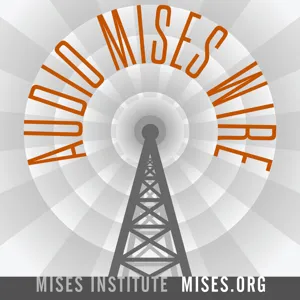Podcast Summary
Free Speech Protections for Foreigners: The British High Court's ruling that Assange should have the same free speech protections as US citizens put the US govt in a difficult position and led to a plea deal to avoid setting a precedent for foreign journalists.
The recent developments in the Julian Assange case demonstrate the importance of free speech protections, even for those outside of the United States. The British High Court's ruling that Assange should be granted the same free speech protections as American citizens put the US government in a difficult position, as they had built their case against him on the assumption that he did not have these protections. Ultimately, the DOJ decided to work out a plea deal with Assange's legal team rather than risk setting a precedent for foreign journalists. This outcome was a major loss for those who wanted to punish Assange for publishing classified information, but a victory for those who believe in the importance of protecting journalistic freedoms. Despite facing confinement for over a decade, Assange was able to return home to Australia and reunite with his family.
Chevron Doctrine: The Supreme Court's decision to overturn the Chevron Doctrine is a significant victory for limiting the power of unelected bureaucrats and returning interpretive authority to the courts.
The Supreme Court's recent decision to overturn the Chevron Doctrine is a significant victory for liberty and a major blow to the administrative state. The Chevron Doctrine, established in 1984, gave unelected federal bureaucrats the power to interpret laws, leading to the growth of a large, unelected bureaucracy that makes up the permanent government. This expansion of power was a result of the Pendleton Act of 1883, which made it illegal to fire or demote most executive branch employees, leading to the creation of a deep state that stays in power regardless of who is in the White House. The Chevron Doctrine allowed for ambiguous legislation and enabled federal agencies to interpret the law as they saw fit, leading to the administrative state's expansion into a powerful entity with over 2 million bureaucrats. The overturning of the Chevron Doctrine limits the power of unelected bureaucrats and returns interpretive authority to the courts.
Assange, Chevron doctrine: Recent developments in the Assange case and the Supreme Court's ruling on the Chevron doctrine mark significant victories for accountability and limiting government overreach, highlighting the power of public pressure and legal challenges to government actions.
The recent developments in the Assange case and the Supreme Court's ruling on the Chevron doctrine mark significant victories for accountability and limiting government overreach. The Assange case, which saw the Biden administration dropping its pursuit of extradition just weeks after it began, highlights the power of public pressure and the potential for legal challenges to government actions. Similarly, the Supreme Court's decision to limit the Chevron doctrine's scope will shift power from unelected federal agencies to elected officials and require greater transparency in regulation drafting. While these developments don't eliminate the administrative state's destructive effects entirely, they represent a significant step towards reining in government power. These victories, which seemed out of reach just a short time ago, underscore the importance of public engagement and the potential for meaningful change.
Perseverance in fight for liberty: Significant progress can happen despite slow pace of change, as shown by historical events, and it's crucial not to lose faith in the face of uncertainty.
While it may seem disheartening to see the slow pace of change in addressing the many issues facing American society, it's important to remember that significant progress can and does happen. The Supreme Court's recent ruling serves as a reminder of the importance of perseverance in the fight for liberty. Historical events like the American Revolution, the abolition of slavery, and the peaceful dissolution of the Soviet Union all seemed impossible at the time, yet they ultimately became inevitable. The next great victory for human liberty may be just around the corner, and it's crucial not to lose faith in the face of uncertainty. For more insights, visit Mises.org.
